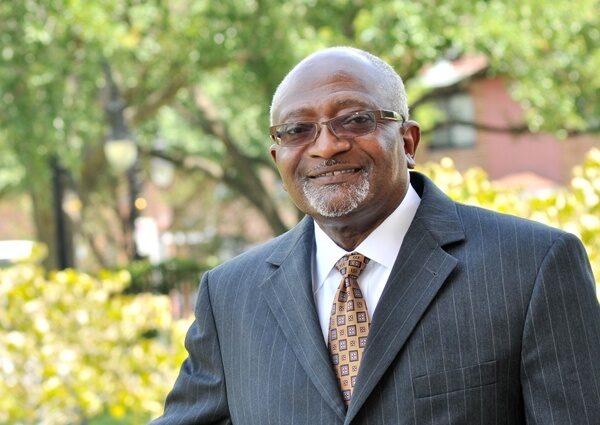Every February, people across Canada and the United States participate in Black History Month events, festivities and tributes that honour the legacy of Black people and their communities.
It’s also a time to shine a light on the ongoing obstacles that Black people are facing, such as the lack of diversity in the environment sector and how communities of colour continue to face the worst impacts of environmental pollution.
In the wake of public outrage about systemic racism experienced by Black, Indigenous and People of Colour (BIPOC), a recent report presented to the United Nations Human Rights Council reveals troubling findings of environmental racism and injustice in Canada.
The report, authored by UN Special Rapporteur on Human Rights and Toxics who visited Canada in 2019, documents the longstanding discriminatory and health devastating pollution experienced by BIPOC communities across Canada. For instance, the data points to the placement of toxic waste sites near African Nova Scotian communities and the pollution from petrochemical plants in Aamjiwnaang First Nation. The report exposes ongoing problems in governmental policies that have resulted in unequal toxic exposures in vulnerable and marginalized populations.
There’s hope on the horizon. The federal government recently proposed to modernize the Canadian Environmental Protection Act (CEPA), the national legislation governing toxic chemicals and pollution prevention. The new bill proposes to address the protection of vulnerable populations and marginalized communities and to recognize everyone’s right to a healthy environment.
Learning more about Black perspectives is essential to understanding the experiences that can help us build a more sustainable and equitable world. While there are many amazing Black environmentalists to learn from, today Environment Journal is celebrating the following:
Annamie Paul

Annamie Paul in Toronto Regent Park during the 2019 Federal Election. Image credit: Green Party of Canada.
Annamie Paul is a Canadian lawyer and activist. She was leader of the Green Party of Canada from 2020 to 2021 — the first Black Canadian to be elected as leader of a major federal party in Canada. “We have the chance of a lifetime to simultaneously tackle the climate crisis while simultaneously building a prosperous and sustainable economy for Canada,” said Paul during her electoral speech.
Paul has worked as an advisor at the International Criminal Court in The Hague and with various international organizations devoted to preserving human rights and fighting climate change. She is also the founder and executive director of the Canadian Centre for Political Leadership from 2001 to 2005. The CCPL was an organization focused on helping women, Indigenous persons, and people of colour to pursue public offices. Through the CCPL, Paul ran training sessions across Canada as well as conferences devoted to ramping up participation in elected roles and board appointments.
She has worked in several civic engagement and international affairs positions, and is co-founder of the Barcelona International Public Policy Hub, a social enterprise co-work space designed to be a catalyst for international NGOs working on global challenges. Aside from providing support, the hub also hosts individual projects including the Climate Infrastructure Project.
In 2019, Paul co-created the 1834 Fellowship to train young Black Canadian policy leaders, a project of Operation Black Vote Canada. Paul is married to international human rights lawyer Mark Freeman and speaks four languages (English, French, Catala and Spanish).
Dr. Robert D. Bullard
Dr. Robert D. Bullard, father of the environmental justice movement in the United States. Image credit: DrRobertBullard.com.
Robert D. Bullard is an academic and environmentalist, often described as the father of environmental justice. He is currently a distinguished professor at Texas South University and co-chair of the National Black Environmental Justice Network.
Bullard’s environmental career began in 1979. That year his wife, attorney Linda McKeever Bullard, represented several residents of the Northwood Manor Neighbourhood of Houston, Texas, against a plan to build a municipal landfill next to their homes. Bullard became part of the case as an expert witness and conducted a study on the location of municipal waste disposal facilities in the city.
The study found that African-American neighbourhoods, including Northwood Manor, were usually chosen as sites for toxic waste sites. All five of the city’s garbage dumps, six of the eight garbage incinerators, and three of the hour landfills were located in predominantly black neighbourhoods — despite Blacks making up only 25 per cent of the city’s population.
Bullard described his findings as a “form of apartheid where whites were making decisions and black people and brown people and people of color, including Native Americans on reservations, had no seat at the table.”
Notable books by Bullard include:
- Dumping in Dixie: Race, Class and Environmental Quality which highlights the issues he had seen and described grassroots movements that combined civil rights and environmental issues,
- Unequal Protection: Environmental Justice & Communities of Color, a study of environmental racism in environmental policymaking and protection regulations, and what can be done about it.
In 1991, Bullard organized the First National People of Color Environmental Leadership Summit, which formulated the organizing principles of environmental justice.
In 2006, when asked what keeps him motivated in his quest for environmental justice, Bullard responded, “People who do not let the garbage trucks and the landfills and the petrochemical plants roll over them. That has kept me in this movement for the last 25 years.”
At the North American Commission for Environmental Cooperation (CEC) Annual Council Session in the fall of 2021, Bullard said: “We don’t need baby steps. We need big transformative steps for the sake of humanity.”
Faith Edem

Faith Edem, policy analyst for the federal government and passionate climate action advocate. Image credit: Environment and Climate Change Canada.
As a policy analyst at Environment and Climate Change Canada, Faith Edem currently helps the federal government advance climate finance programming and leads energy policy analysis to support Canada in achieving its climate goals. She is a member of the ECCC Black Employees Network, which supports diversity, inclusion, and equity throughout the department.
At the provincial level, she’s advanced strategic operational policy in the Ontario Cabinet Office and led in-depth stakeholder consultations in the Ontario Ministry of Agriculture. Her professional experiences centers on problem solving, project management and collaborative communication.
As a public speaker, Edem enthusiastically delves into subjects on sustainability, career development, mentorship and diversity and inclusion at events, panels and podcasts. As a researcher and sustainability actor, she is driven by the intersection of climate finance, sustainable policy and a net-zero future. She is passionate about shaping her research experience to support various UN Sustainability Development Goals.
At her young age, Edem has already been recognized and celebrated as a leader in her field: she is a 2021 30 under 30 Sustainability Leader, a 2021 GreenBiz Circularity 21 Leader and a co-author of Our Climate, Our Stories.
She also founded the Youth Lens Project: Critical Analysis of Net-Zero by 2050 in the Environmental Protection Branch Youth Network. The project critically explores Canada’s roadmap to 2050 through a youth policy lens. Under Edem’s leadership, the project provides youth the opportunity to provide qualitative analysis on Canada’s current climate plan.
Recently, Edem participated as a speaker at Pollution Probe’s 2021 Gala & Conference: Code Red, which focused on a youth perspective for addressing climate change. She provided a well-informed understanding of public policy implementation predicated on environmental and racialized challenges. She shared her success story while pointing to the ongoing issues that systemically and strategically silence people who should be part of the climate action conversation. Edem also emphasized the importance of active participation and “breaking down systemic barriers to allow more people to make a positive difference.”
There are many noteworthy Black environmentalists who have worked and continue to work tirelessly to protect our planet. Let’s keep this conversation going throughout the year and let’s all help to make a much needed positive difference.
Featured image credit: Twitter @AnnamiePaul










